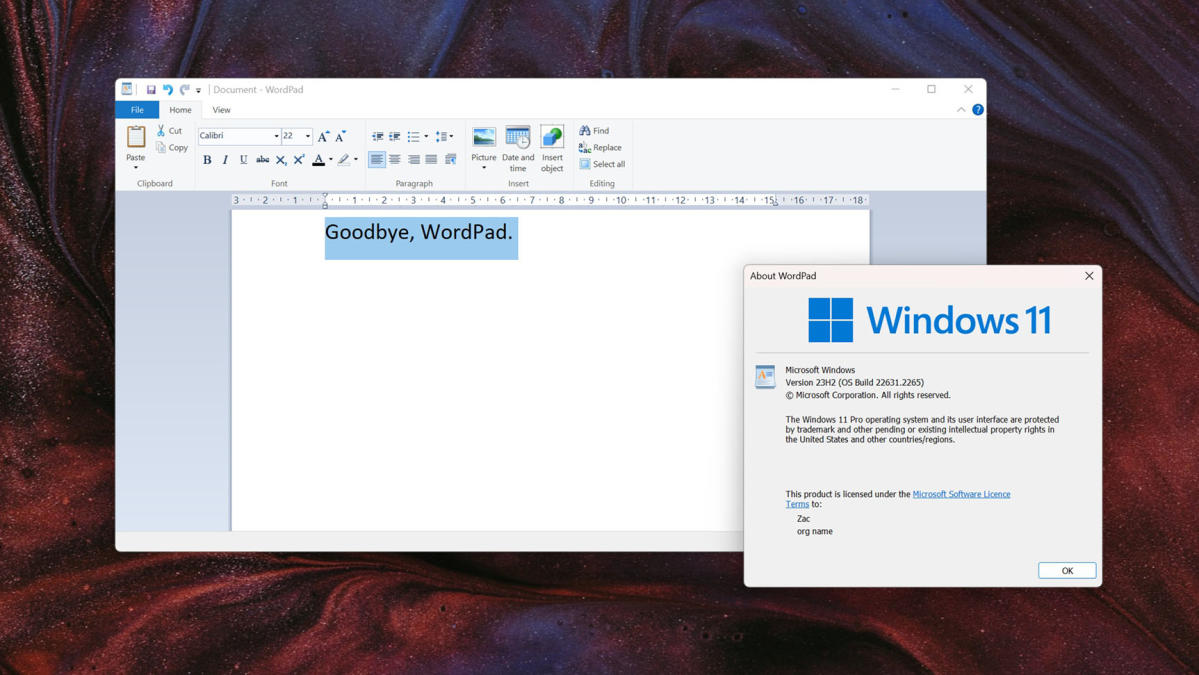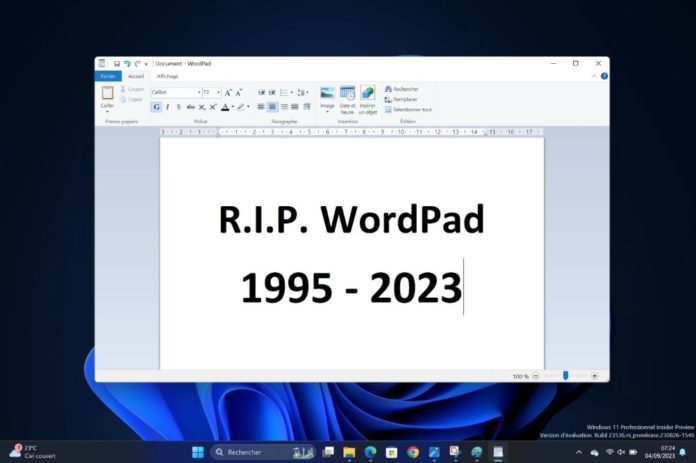In a significant move, Microsoft has officially announced the retirement of its long-standing drafting software, WordPad. The software, which has been a staple of Windows operating systems since Windows 95, will be phased out and replaced with the more robust Microsoft Word in future versions of Windows, starting with the highly anticipated Windows 12 update.
The End of an Era
Microsoft revealed this transition through an announcement page titled ‘Deprecated features for Windows client,’ signaling the end of an era for WordPad. The announcement reads, “WordPad is no longer being updated and will be removed in a future release of Windows,” emphasizing that these deprecated apps are making way for new features and functionality.

WordPad has remained relatively unchanged since the introduction of the Windows 7 Ribbon UI. Its simplicity and basic functionality made it suitable for quick text editing tasks but limited its capabilities compared to its successor, Microsoft Word. WordPad predominantly saves documents in the .rtf (Rich Text Format) and lacks many of the advanced features found in Microsoft Word.
Microsoft Word: The Natural Successor
Microsoft’s decision to replace WordPad with Microsoft Word aligns with the latter’s reputation as a comprehensive word processing and office suite software. Microsoft recommends using Microsoft Word for creating rich text documents in formats like .doc and .rtf, while Windows Notepad is suggested for plain text documents in .txt format.
However, the transition doesn’t merely involve a software swap. Microsoft Word itself is set to receive a significant upgrade with the integration of a generative AI assistant named Copilot. This AI assistant will not only interface with ChatGPT but also leverage data from Microsoft Word and other Microsoft 365 applications. Users can expect features like automatically generating initial drafts, reducing the time spent on writing, sourcing, and editing documents, ultimately increasing productivity.

New Features Ahead
On the flip side, WordPad’s sibling app, NotePad, is not being phased out but rather receiving some much-needed attention. Windows 11 Insider Preview already includes new features for NotePad, such as autosave and the ability to automatically restore previously open tabs along with unsaved content and edits across those tabs. These improvements mark a substantial update for NotePad, which had seen minimal changes since its debut in 1983 and received its last significant update back in 2018.
The transition from WordPad to Microsoft Word signals Microsoft’s commitment to offering users a more comprehensive and feature-rich word processing experience. As Windows continues to evolve, users can look forward to enhanced productivity and efficiency when creating and editing documents within the Microsoft ecosystem. The upcoming Windows 12 update, along with the integration of Copilot in Microsoft Word, promises to revolutionize the way users interact with word processing software.



































